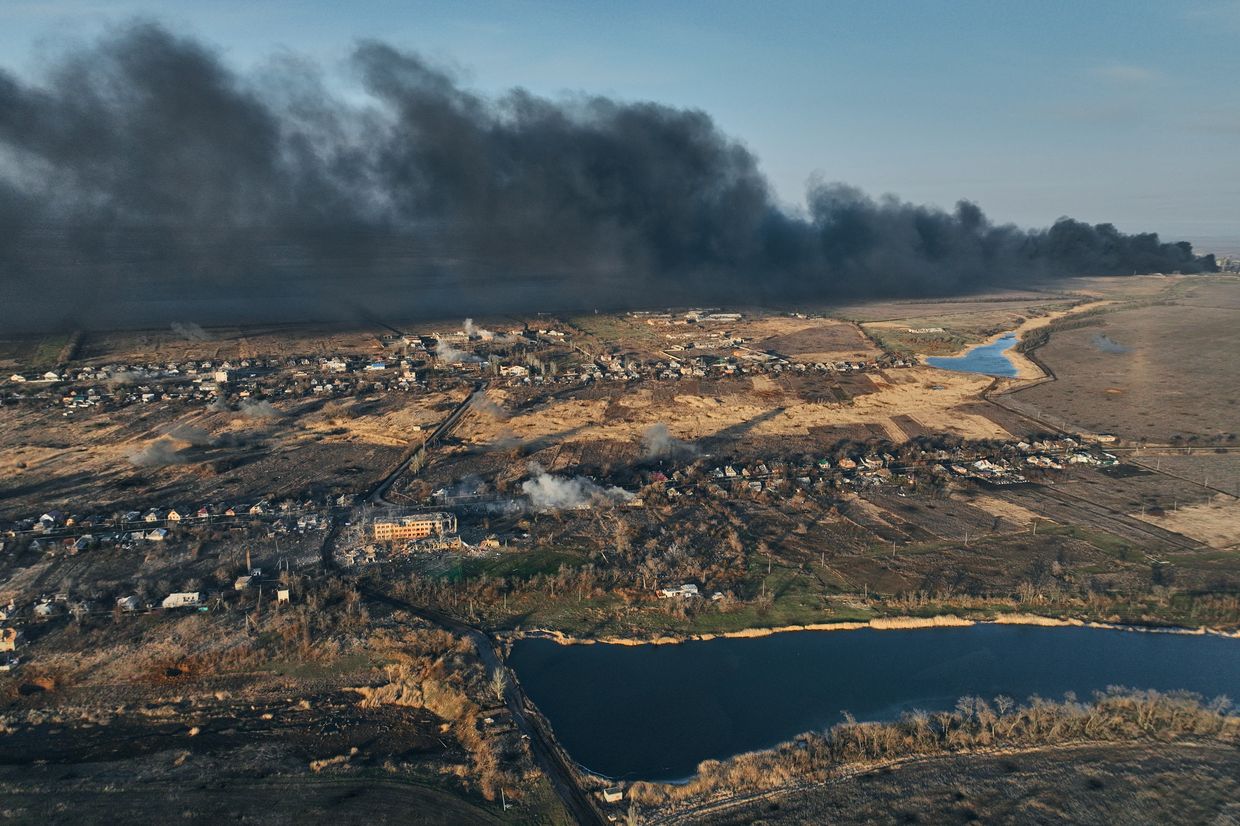US Ambassador: 'There's no time to lose'

U.S. Ambassador to Ukraine Bridget Brink told reporters on Feb. 20 in Kyiv that the U.S. does not "have a plan B" when it comes to the supplemental aid package currently being debated in Congress "because we're focused 100% on plan A."
The future of U.S. military aid to Ukraine has become an especially significant issue over recent days with the Ukrainian withdrawal from the heavily-battered city of Avdiivka.
Two days before Ukraine's formal retreat from the city, U.S. National Security Council spokesperson John Kirby said the city was at risk of falling to Russian hands, citing Ukraine's critical shortage of artillery shells as a significant contributing factor.
"The timing is up to Congress," Brink told reporters. "I can tell you I've had two conversations with the speaker. I know that he is supportive of Ukraine and he understands the importance that Russia loses this war."
Congress has repeatedly failed to pass additional military funding and the Senate recently approved a foreign aid bill including $60 billion for Ukraine.
However, the Republican-led House of Representatives presents a more difficult challenge. House Speaker Mike Johnson voiced opposition to the new aid bill, saying it needs to contain measures addressing security on the U.S.-Mexican border, even though he previously helped to kill a broader package that combined foreign aid and immigration reforms.
When asked by a Kyiv Independent reporter about complaints from Ukraine's business community regarding pressure from law enforcement, Brink responded: "It is critically important that Ukraine has a business environment that is going to attract (this) foreign investment. And what kind of investment do you want? As I hear from your leadership and from the population – it's Western investment."
Ukraine's government and business leaders have formed a business support council, announced by President Volodymyr Zelensky on Jan. 23. This development came after the detention of influential investment banker Ihor Mazepa, whose arrest sparked criticism from the Ukrainian business community that called the incident a continuation of systemic pressure from the state, including unannounced searches, asset seizure, and detentions.
Mazepa faces allegations of unlawfully acquiring land in Kyiv Oblast between 2020 and 2021, which he denies.
Brink stressed that Ukraine needs to ensure a "very good business environment" to attract Western investment and succeed in a post-war reconstruction: "That means a judicial system where a business can depend on a result that's based on the rule of law. It means a regulatory environment that is transparent and predictable and led by people who have ethics and integrity in their decisions. It means tax, customs, all these services that businesses also depend on operating in a clean and transparent way."
Ambassador Brink emphasized that President Joe Biden continues to work tirelessly to pass the Ukraine aid package and that "every minute counts." The package reportedly contains three parts: security in the form of weapons provisions, direct budget support, and economic support.
"I think I'm confident that assistance will be passed. As for the timing and the exact composition, I don't know. That's a very political question that I can't foresee."
Additionally, the U.S. Ambassador addressed the scope of Russian President Vladimir Putin's authoritarian impact beyond Ukraine in light of Alexei Navalny's murder.
"My view, which I think is shared by most of the policy community, is that Putin won't stop at Ukraine... I have that view because I've also worked in Georgia and Moldova and many parts of this region. And I am convinced that that is what will happen."
In response to questions on recent pressures on Ukraine's independent media, the American Ambassador said that independent media must become a protected element of Ukrainian society for the country to become a part of the E.U. and NATO.
"Ukrainians and the Ukrainian leadership want to go into Europe and NATO, and free media is going to be a very important part of that. I welcomed President Zelensky’s statement. He said it's unacceptable for pressure to be put on the media. We support that position."















